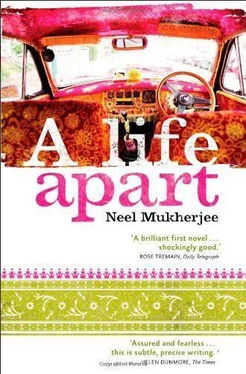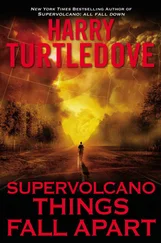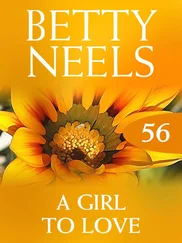He has hardly taken two steps forward, intending to crouch down and roll over the distance that separates him from his hiding place, when someone shouts, ‘There he is. Jim, to your left.’
In an instant they are on him. Someone trips him up: he breaks his fall using the palms of his hand. He doesn’t feel the skin scraping off them as he manages to save himself falling on his face, only the pure lucidity of his terror, like some clear afternoon light. They kick him while he is lying down, random kicks, aimed nowhere in particular. One catches him in his groin and he doubles up in pain. There is one on his ribs that takes all his breath away; try how hard he may, he cannot breathe anymore. As he chokes, he feels little popping explosions of light, a thousand lights, of dull, unnameable colour, behind his eyes.
‘Send the fuckers back send those Paki scum away.’ They are almost chanting it now, like a mantra at a ritual, their words resonating in some deep way to the blows they throw out in such aleoritic concord: a kick, a punch to the face, a sickening sound of cracking and crunching of bone. He tries to shout, but the scream is soundless. He doesn’t know whether he should shout for help or beg for mercy. Just before he loses consciousness, Ritwik is granted not the diorama of his entire life flashing past his eyes in an instant but two unrelated moments of clarity: he is struck with wonder at the sheer rage these men are expressing; where is its wellspring? How can one small human harbour a sea of such anger inside him? Why do they not drown under it? The last light is the awareness of the fact that at some point during the chase or the assault, he had wet his jeans. Then he passes into the warmth of darkness.
He doesn’t hear the sharp, cold flick of a metal blade emerging from its sheath, cries of ‘No, Dave, no, don’t be so fuckin’ stupid, let’s fuck off quick, no, Dave, no’, doesn’t feel the swift entries and exits of the knife, doesn’t hear the desperate cry of ‘You daft cunt, what the fuck have you done’ repeated over and over, the sound of five sets of running, escaping feet, as his thin blood trickles out on to this dark corner of a back street that will be forever England.
Miss Gilby sits on the terrace of the bungalow with a blanket drawn over her knees and soaks up the welcome warmth of the midday sun. It is so quiet that she can almost hear the wheeling of the brown eagle — Ruth would immediately reel off its scientific name, habitat, reproductive habits, nesting characteristics if she were to see it — in the middle distance, against the backdrop of the gleaming ranges of the Garhwal, their tops tipped with white snow that turn flame orange in the afternoons and then blue, an unfathomably dark blue, moments before the silent nightfall.
Ruth has gone inside to ask Mohun Singh to rustle up some lunch. She briefly appears at the door and calls out, ‘Maud, there’s a letter for you. I think it’s from your brother. Shall I bring it out to you?’
Without looking behind her, she answers, ‘If you will be so kind.’ She is intent on watching the gliding arcs the eagle is describing in the clean, thin air. It gives Miss Gilby a vertiginous feeling inside her, as if she were in free fall. Part of that, she thinks, with her characteristic rationality, might be because the terrace of Ruth’s bungalow is poised right on the edge, with nothing between it and the graceful bird but a steep valley of air reaching out over the tops of hills and ranges to the distant might of the Garhwal.
Later this afternoon, she is going to watch Ruth draw the next three birds for her new book — finch-billed bulbul ( Spizixos semitorques, did you know, Maud, some of these are really good songsters? ), hoopoe ( Upupa epops ) and the eared or snow pheasant ( Crossoptilon crossoptilon, really too low for it to be here in Almora, how strange, it usually lives in Tibet and northern China, this really is very unusual, I shall have to write off to Mr Elliot immediately ). Miss Gilby especially likes the hoopoe, and Ruth tells her quite a charming little story about how these birds had been given crowns by God for sheltering Solomon from the sun but they were killed for these crowns so often that they appealed to Solomon, who in turn prayed to God, and the crown was changed to the crest of feathers we see on their heads now. Miss Gilby is going to help Ruth with the accompanying illustrations of various individual feathers and vegetation, mostly leaves and flowers from the particular birds’ native habitats. They have collected some specimens of flowers and leaves from their rambles in the hills so that she can have them in front of her while practising the sketches. It still gives her an excited shiver of delight to think that she has a hand, however minor or marginal, in helping Ruth Fairweather create her glorious ornithological survey of the Indian Sub-Continent.
Ruth comes out, gives the letter to Maud, and takes her place in the chair beside her. It is indeed from James and feels quite substantial. She decides to open it now and only skim it, reserving the proper reading for later. Five sheets of close cursive hand. Local gossip, new governor of Madras, North Arcot politics. . she grazes inattentively. . shipping taxes, Mysore growing restive, Lady Ampthill’s latest. Then the name ‘Nikhilesh’ on page three makes her halt and retrace her eyes over the relevant area of the paper.
You might already know this but I thought there would be no harm in repeating that Nikhilesh, your zamindar in Nawabgunj, died in the Hindoo-Mohammedan riots, which erupted in his village very shortly after you left. (Thank the good Lord for that.) Apparently, a stray bullet got him while he was out trying to stop a riot. Must admit to feeling rotten when I found out about it. My first thought was. .
Miss Gilby neatly folds the letter and puts it away in a pocket. Ruth asks, ‘Everything all right?’ politely, perhaps because she has noticed the slight tremor of her friend’s hands. Miss Gilby nods and reaches for the binoculars on the little stone table between them. She looks through it and tries to find the brown eagle but it is gone. She can only see the snow-scarred slopes of the distant mountains, brought so close now by the glasses that she could reach out her hand and almost touch them.
Bengalis, as indeed most Indians, address each other relationally. An older brother is called dada , while someone who stands in such a relationship to the speaker would be addressed by his first name with the suffix — da . An older sister, similarly, is didi , and someone like an older sister is called by her name with the suffix — di. Mama is maternal uncle, mashi maternal aunt and dida maternal grandmother. Jamai is brother-in-law, jamaibabu , a respectful way of addressing an older brother-in-law, so didi ’s husband would be called jamaibabu .
It would not have been possible to write Miss Gilby’s story without Sumit Sarkar’s The Swadeshi Movement in Bengal 1903–1908 (People’s Publishing House: New Delhi, 1973, 2nd imprint, 1994). For those interested in the period and in the particulars of this chapter of colonial history, his still remains the most magisterial account: lucid, exhaustive, and deeply intelligent. I feel privileged to have taken some bearings from his work in writing my own.
Permission to quote from Cynthia Ozick in the epigraphs from author through David Miller at Rogers, Coleridge & White. Every effort has been made to obtain necessary permission with reference to copyright material. The publishers apologize if inadvertently any sources remain unacknowledged and will be happy to correct this in any future editions.












